Introduction

The Triumph Scrambler 400 X is the bigger, more desirable twin of the Speed 400. And after having ridden it extensively, we also find it to be the more versatile motorcycle of the two.
Not just that; in our time over good tarmac and bad, around twisting roads and arrow straight sections, and off the road too, we discovered it to be a worthy alternative to the KTM 390 Adventure and the Himalayan.
How and why? Read on…
The Visuals
As far as visual cues go, the Scrambler looks just like the Speed 400 from a distance. And that is a good thing. The Speed 400 is a beautiful-looking motorcycle with premium touches all around. This continues on the Scrambler 400 X as well.

The latter has the same traditional yet gorgeous British thumper design elements like the round headlamp, a teardrop fuel tank, and minimal side and rear bodywork. Plus, the attention to detail on these elements is striking and worthy of a double take.

More importantly, the Scrambler addresses the Speed’s one big Achilles heel - lack of road presence. The Scrambler, owing to its taller stance, the bigger front wheel, and the wider handlebar complete with knuckle guards, has a beefier and bigger visual presence.

Now, it might not be obvious, but apart from running different wheels, the Scrambler has a different chassis to the Speed as well, giving it a significantly longer wheelbase compared to the latter. Other changes include different footpegs, a split seat, and a more purposeful-looking exhaust. These play a subtle but significant role in upping the 400 X’s road presence.
The Package
The big change in the 400 X’s chassis is a longer neck for the main frame. Otherwise, it is still a tubular unit with a bolt-on sub-frame. The Scrambler also has longer travel for both the front USD forks and the rear monoshock.

The front forks are set at a steeper angle now to improve response since it runs a bigger 19-inch wheel. And, to compensate for the twitchiness a sharper steering geometry might bring - especially when riding off-road - the 400X also runs a front axle offset.
As mentioned, the bike uses a larger 19-inch front wheel, while the rear retains a 17-inch unit. The front also runs a narrower 100-section tyre with off-roading in mind. And the rear too is slimmer compared to the Speed 400 with a 140-section width. Finally, there’s no change to the rear brake setup, but the front brake runs a larger 320mm disc on the Scrambler.

As for the engine, it is the same unit and in the same state of tune as the Speed 400. The 399cc, single-cylinder, liquid-cooled engine makes a little under 40bhp and almost 38Nm of peak torque. But Triumph has played with a bigger airbox and engine internals to deliver a higher and flatter torque curve than what the engine’s oversquare bore and stroke ratio might otherwise suggest.
The six-speed gearbox is carried over from the Speed 400 as well with the same gear ratios. But to give the Scrambler more grunt off-road, the 400X runs a smaller front sprocket. This has resulted in a shorter final drive, and with it, an even stronger drive in lower gears.

Feature-wise, there’s nothing extraordinary on offer. One gets a part-analog-part-digital instrumentation with readouts for two trips, range, rpm, selected gear, fuel level, and time. It is a unit that looks past its prime. One can nonetheless access a menu through the instrumentation to turn off both traction control and the ABS at the rear wheel. But again, it is not the most intuitive and it can feel a tad tedious at times too.
The Ride
The Scrambler does two things exceedingly well when it comes to riding - it checks the comfort and ease-of-riding boxes, comprehensively.

So, whether you are staring at peak hour traffic for your commute back home at the end of a long day, or a state highway you have never been on, you will rarely want to leave the 400X keys on the table. It feels light and easy to filter through traffic with, and with no real engine heat bothering the rider, one can sit in chock-o-block traffic without cursing. It is also comfortable, absorbent, and stable over poor roads. So one’s apprehension about taking on unknown roads will be far less when astride the Scrambler.

What’s more, when you take it on a twisty road, the larger front wheel doesn’t get in the way. The 400X flows uninterrupted through corners and it has a sense of balance and predictability which instills loads of confidence in the rider. It responds with alertness and accuracy to steering inputs; it rarely feels soft or wallowy no matter how bumpy the corner; and it never feels lazy through quick direction changes.

It’s a motorcycle you instantly connect with and feel at home. So much so, that you can’t really go wrong with it. Having said that, it could do with better brakes and nicer tyres. The front brake in particular needs more bite and the tyres in general could do with more grip to complement the chassis.

Now, Triumph says this is a Scrambler. So, we had no choice but to take it off the road as well. And true to its specs, the 400X is happy handling the hard-packed stuff. There’s decent travel, the suspension handles the beating off-road without complaint, and it doesn’t feel heavy or unmanageable.

Rocks, ruts, jumps, and what have you, if it’s not too serious, the 400X handles it without throwing a fit. Plus, the more you ride it, the more you realise it doesn’t do anything funny; it is predictable off-road that way. This in turn builds confidence to go faster and take on more difficult trails. But yes, it needs a little more off-road-focused rubber to enjoy it properly.
Conclusion
As we said, you can’t go wrong with the Scrambler. Moreover, with its bigger front wheel, higher suspension travel, and more comfortable and upright seating ergonomics compared to the Speed, it is better suited to different riding scenarios. One can take on the rough, twisties, and fast city commute with equal vigour on the 400X. So, it is more versatile.

Now, compared to the entry-level 390 Adventure X, not only is the Scrambler cheaper, but it has more electronics on board too. Yes, it has lower clearance and suspension travel than the KTM, but given its stronger engine characteristics, we feel it makes for a worthy alternative.

It is a good alternative to the Himalayan too, even though a pricier one. One must also note that the 400X is not as good at taking on the challenging stuff off-road as the Royal Enfield. But, if someone is looking at spending more time on the road with some off-roading thrown in, the Scrambler - with better road manners, performance, tech, and a premium build - should certainly be on the list.
Photography by Kapil Angane
Gallery
1/30
Triumph Scrambler 400 X Left Side View
Double Tap to Zoom

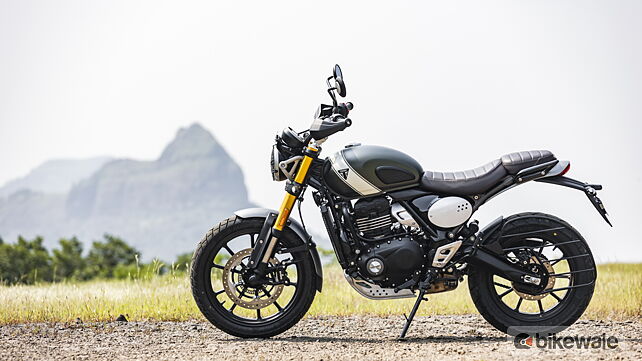














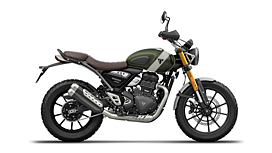

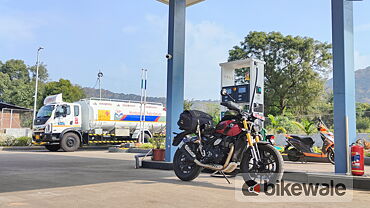

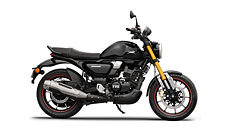
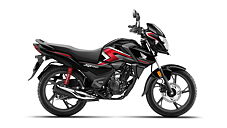
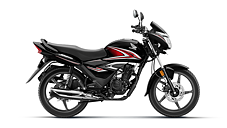

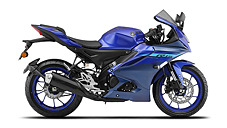
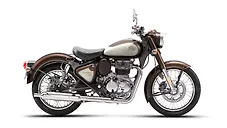
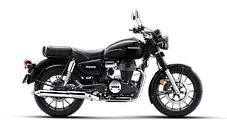
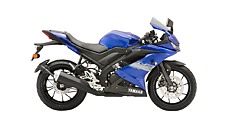
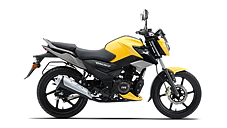
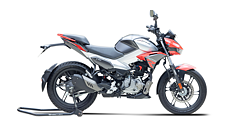
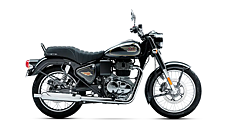
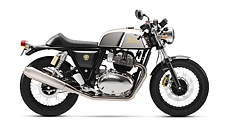
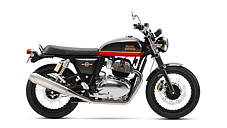
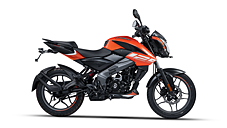
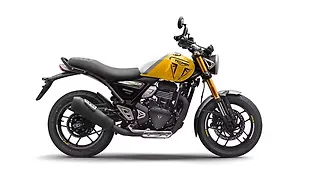






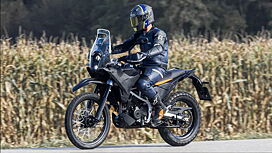
![KTM 390 Adventure X [2025] KTM 390 Adventure X [2025]](https://imgd.aeplcdn.com/272x153/n/cw/ec/190885/390-adventure-x-2025-right-side-view.jpeg?isig=0&q=80)